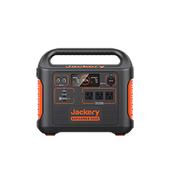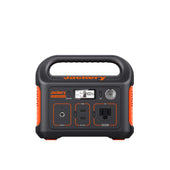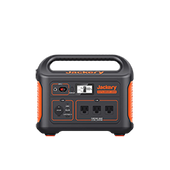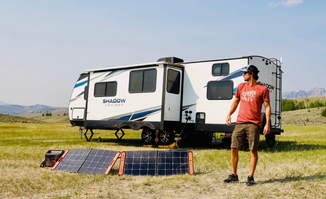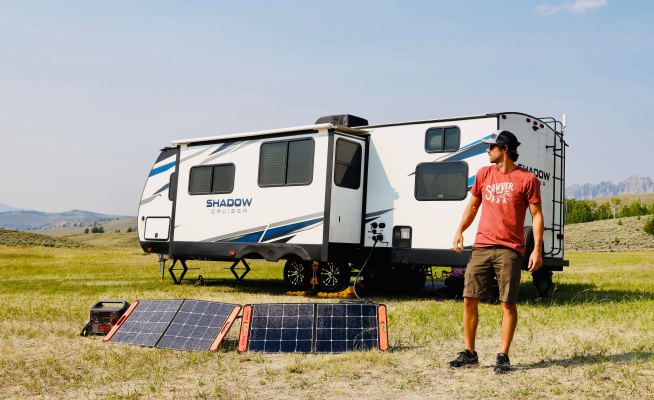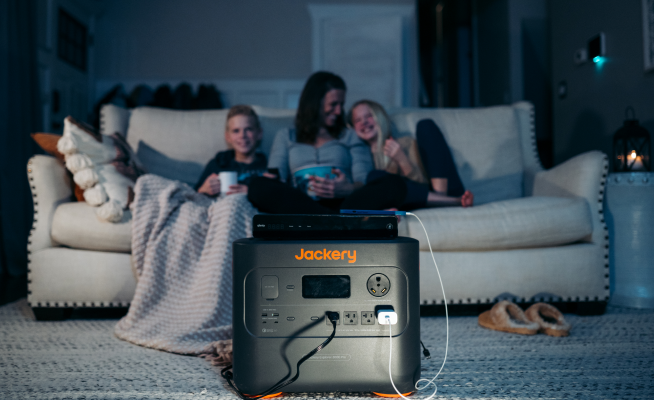Introduction to Portable PV Panels: Exploring the Concept and Advantages
Portable photovoltaic (PV) panels are reshaping the way energy is consumed and generated in Canada. This exploration begins with an understanding of how these compact, efficient energy solutions, including small-scale portable PV panels and the more advanced monocrystalline solar panels, are making a substantial impact. We'll traverse the landscape of renewable energy through the lens of Canadian usage and the practicality offered by industry leaders like Jackery, whose products epitomize the fusion of portability and power.
As we delve into the subject, this article will provide insights into the applications and benefits of harnessing solar energy through portable means. From the Jackery Solar Generator 1000 Plus to the robust Jackery Solar Generator 3000 Pro, we will illustrate how these innovative products, featuring portable PV panels, integrate into and enhance the daily lives of Canadians. These systems aren't just technical marvels; they are a testament to the potential of solar technology to contribute to a sustainable future.

Overview of Canada's Renewable Energy Market
Canada's vast landscapes and environmental conscientiousness offer a fertile ground for renewable energy sources, with solar power taking a prominent place in the nation's energy strategy. The expansive land provides ample space for the deployment of portable PV panels and other solar technologies, maximizing Canada's abundant solar resources.
Regional Growth in Solar Energy Adoption
Different regions in Canada have demonstrated varying levels of growth and enthusiasm in adopting solar energy solutions. Ontario, for instance, has been a trailblazer in solar energy market development, thanks in part to its favorable climate conditions and supportive policy environment. Quebec and Alberta follow suit, showing substantial progress with their rapidly expanding solar sectors. These provinces have leveraged their unique geographical advantages, such as longer daylight hours in the summer months and relatively sunnier climes, to bolster their solar energy markets.
Government Incentives Fueling Solar Expansion
Government support has been pivotal in the upsurge of solar energy adoption across Canada. Canadian federal and provincial governments have implemented a plethora of policies aimed at promoting renewable energy. Tax exemptions and subsidy programs provide financial relief to those investing in solar energy installations. Renewable energy targets set by the government act as a beacon, guiding businesses and individuals toward a more sustainable future and encouraging the integration of solar generators and portable power stations into everyday life.
The Canadian Renewable Energy Association further reinforces the commitment to expanding the renewable market. With an eye on increasing the small photovoltaic panel footprint, there is a concerted effort to ensure that solar power, including the use of portable solar panels, becomes more accessible and commonplace.
The solar power generator portable market in Canada also benefits from feed-in tariff programs, net metering, and rebate programs that are specific to certain provinces. These incentive measures are designed to reduce the financial burden on those who install solar PV systems, including the installation of monocrystalline solar panels, which are recognized for their high efficiency and durability.
As a result of these combined efforts, Canada has seen a significant increase in the number of residential and commercial solar power installations. This has included a surge in interest and investment in portable solar solutions, like the Jackery Solar Generator 1000 Plus and the Jackery Solar Generator 3000 Pro, which allow Canadians to harness solar energy in a way that suits their mobile lifestyles.
Advancing Solar Solutions for a Sustainable Future
The Canadian government’s dedication to fostering a greener energy sector has also positioned the country as a leader in the fight against climate change. It's a commitment that not only helps to preserve the country's natural beauty but also contributes to a global effort to transition to more sustainable energy sources.
With each policy, program, and target, Canada moves closer to a cleaner energy economy, with solar power playing a vital role in this transformation. The country's approach to renewable energy, which now increasingly includes portable solar solutions, showcases a future-forward mindset, ensuring that both urban dwellers and remote communities have access to reliable and clean power.
Applications of Small Photovoltaic Panels in Canada
The versatility of small photovoltaic panels has allowed them to become a vital component in Canada's renewable energy landscape, transcending various sectors and geographical boundaries. Their applications span from residential rooftops to remote communities, presenting a powerful solution for reducing carbon footprints and achieving energy independence.
Residential and Small-Scale Commercial Applications
In the residential sector, small photovoltaic panels are increasingly being adopted by Canadian homeowners eager to reduce their reliance on traditional energy grids and to decrease their electricity expenses. These installations can be seen on rooftops, in backyards, and as part of home appliances, such as solar-powered attic fans. They are not just a symbol of sustainable living but also provide tangible reductions in energy bills.
Commercially, small-scale businesses across provinces are incorporating photovoltaic technology into their operations. Whether it's a small cafe in downtown Toronto or a boutique lodge in the Rockies, businesses are utilizing these panels to offset their energy consumption, leading to considerable savings and a reduced environmental impact.
Community and Public Facilities Applications
Community-based projects have also harnessed the potential of small portable PV panels. Public spaces like parks, community centers, and even street lighting have integrated solar power, thus fostering an eco-friendly image and encouraging public adoption of renewable energy.
In the education sector, schools are introducing small portable PV panels not only as a source of clean energy but also as educational tools for students to learn about renewable energy firsthand. Similarly, sports arenas are turning to solar energy to power their facilities, highlighting a commitment to sustainability in Canadian sports.
Applications in Remote Areas and Island Communities
Canada's geography includes vast expanses of remote areas where conventional power infrastructure may not be as accessible or reliable. Small photovoltaic panels, especially portable PV panels, offer a lifeline in these regions, providing a supplementary power source that enhances energy security. In island communities, where logistics compound energy costs, small PV systems are an economical alternative to expensive and environmentally damaging diesel generators.
In these isolated locales, solar power is not just about energy conservation; it's a means of ensuring consistent access to electricity. Such systems have bolstered the resilience of these communities, empowering them against power outages and supply disruptions.
Product Recommendation: Jackery Solar Generator 1000 Plus
A product that epitomizes the utility and adaptability of small PV panel technology in Canada is the Jackery Solar Generator 1000 Plus. This system pairs a high-capacity portable power station with durable, efficient monocrystalline portable PV panels. It's an ideal solution for Canadians who need reliable energy for both everyday use and emergency situations.
Jackery Solar Generator 1000 Plus offers ease of use, portability, and the peace of mind of having power on hand, making it an excellent recommendation for individuals seeking a renewable energy option that is both practical and effective. Its ability to be set up quickly and with minimal technical knowledge makes it a go-to choice for a wide range of applications, further demonstrating the growing role of small photovoltaic panels in Canada's renewable energy endeavors.
As Canada continues to expand its solar footprint, products like the Jackery Solar Generator 1000 Plus, which features small and versatile portable PV panels, are set to play an increasingly significant role in the nation's energy matrix, symbolizing a move towards a greener, more sustainable future.

Applications and Case Studies of Monocrystalline Solar Panels in Canada
The adoption of monocrystalline solar panels in Canada is driven by their high energy conversion efficiency, long-term durability, and reliability under various environmental conditions. These attributes make them an excellent choice for diverse applications, from urban settings to the most challenging rural landscapes.
Advantages of Monocrystalline Solar Panels
Monocrystalline solar panels are preferred for their efficiency and stability. They are composed of single-crystal silicon, which allows for more room for electrons to move, thereby enhancing electricity production. This type of solar panel is also known for its sleek design, making it not just a practical but also an aesthetically pleasing option for many installations.
Agriculture and Rural Area Applications
In the agriculture sector, monocrystalline solar panels are revolutionizing how energy is used and managed. Farms across Canadian provinces have begun installing these panels to power operations. For instance, in the prairies of Alberta, solar-powered irrigation systems help conserve water and ensure that crops receive optimal care without the excessive use of grid electricity.
Greenhouses, too, have benefited from the installation of monocrystalline solar panels. By providing a stable power source, greenhouses can maintain the necessary climate controls that are crucial for year-round plant growth, particularly in regions with extreme seasonal changes.
Livestock farms have also adopted solar power, using it to run everything from feed lines to ventilation systems. In a case study from rural Quebec, a dairy farm installed monocrystalline panels to power their milking equipment, reducing their reliance on grid power and safeguarding against power outages that could affect milk production and storage.
Outdoor Solar Power for School Activities
Monocrystalline solar panels have found a place in the education sector as well. Schools are incorporating solar energy to power outdoor activities, providing students with a sustainable power source that allows for learning beyond the confines of the classroom.
A notable example is a high school in British Columbia that has established an outdoor learning program powered entirely by solar energy. The school installed monocrystalline panels on their outdoor education pavilion, enabling students to charge their devices, conduct science experiments, and learn about renewable energy technologies in an immersive environment.
This initiative not only provides students with hands-on experiences with sustainable practices but also helps the school reduce its operational costs. By harnessing solar energy, educational institutions can decrease their carbon footprint while promoting a green curriculum.
Case Study: Expanding Educational Horizons
A specific case study highlighting the impact of monocrystalline solar panels in educational settings involved a university in Ontario that launched a solar-powered study area on its campus. This space, equipped with USB charging ports and Wi-Fi, allowed students to study and attend online classes outdoors. The university reported a significant reduction in indoor facility use, which corresponded to lower energy costs and an enhanced student experience.
These applications and case studies demonstrate the growing footprint of monocrystalline solar panels across Canada. As more sectors recognize the benefits of this technology, the nation's commitment to renewable energy sources becomes even more robust, fostering a sustainable and resilient energy future for all Canadians.
Applications of Portable Solar Power Systems
The integration of portable solar power systems into daily life in Canada is becoming increasingly prevalent due to their flexibility and ease of use. These systems offer a sustainable and reliable power source for a variety of activities, ensuring that electricity is available even when off the grid.
Outdoor Activities and Camping
For enthusiasts of the great outdoors, portable solar power systems have become indispensable. Camping trips, often taking place far from conventional power sources, can now enjoy the comforts of modern living thanks to solar power.
Devices such as the Jackery Solar Generator 3000 Pro allow campers to charge batteries, mobile phones, and other essential gadgets, enhancing the outdoor experience by providing convenience and safety.
The adaptability of these systems to various weather conditions and environments makes them particularly suited to the diverse Canadian landscape.
Emergency Backup Power Source
In emergencies, such as during natural disasters or unexpected power outages, a reliable power source is crucial. Portable solar power systems have proven to be vital in these scenarios, providing energy to power emergency rescue operations and communication devices.
These solar generators can be quickly deployed, offering an immediate solution to power needs when the grid is down. Jackery Solar Generator 3000 Pro, with its high energy capacity, can sustain vital electrical equipment for extended periods, assuring that help is available in critical times.
Temporary Events and Outdoor Entertainment
Canada's cultural scene often features temporary events and large-scale outdoor entertainment activities where traditional power access is a challenge. Here, portable solar power systems shine by supplying clean, emission-free energy. The use of systems like the Jackery Solar Generator 3000 Pro at festivals, outdoor concerts, and community events demonstrates a commitment to sustainability while providing all the necessary power without the noise and pollution of diesel generators.
Product Introduction: Jackery Solar Generator 3000 Pro
Jackery Solar Generator 3000 Pro is an exemplary model of what portable solar power technology can offer. It is specifically designed to meet the energy demands of a wide array of applications, from the most leisurely to the most urgent. With a substantial storage capacity and high-power output, the Jackery Solar Generator 3000 Pro can support everything from small appliances and lighting to more power-intensive devices. Its portability makes it an ideal companion for recreational vehicles and outdoor setups, providing a seamless energy experience.
Moreover, the Jackery Solar Generator 3000 Pro is user-friendly, with an intuitive interface that does not require extensive technical knowledge to operate. It's a plug-and-play system that ensures clean energy is just a connection away. As more Canadians turn to sustainable living practices, portable solar power systems like the Jackery Solar Generator 3000 Pro represent not just a product but a lifestyle choice, aligning with the environmental values that are deeply rooted in the country's ethos.

Conclusion
Canada's shift towards renewable energy is highlighted by the adoption of small-scale and monocrystalline solar panels, as well as portable solar power systems like those developed by Jackery. These solar solutions are becoming a part of everyday life, serving a variety of purposes from residential to commercial and supporting remote, rural, and outdoor activities.
Companies like Jackery are at the forefront with products such as the Jackery Solar Generator 1000 Plus and Jackery Solar Generator 3000 Pro, which provide essential power in various settings while aligning with Canada's commitment to combat climate change. This move towards solar technology, especially portable options, is enhancing energy resilience, driving the green economy, and supporting global environmental objectives, signaling a greener and more sustainable future for the nation.
Related Articles:
Ultimate Guide to Solar Panel Voltage
Solar Panel Lifespan: How Long Do Solar Panels Last
Discover the Latest Portable Solar Panels for Picnics in Canada
Disclaimer:
The runtime mentioned for appliances powered by Jackery is for reference only. Actual runtime may vary under different conditions. Please refer to real-world performance for accurate results.



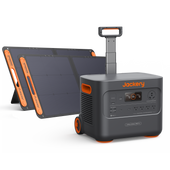






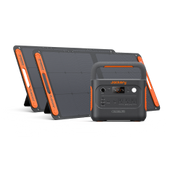
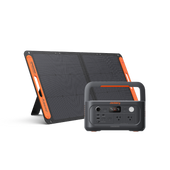
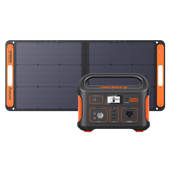

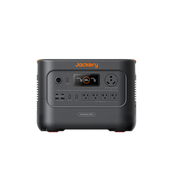
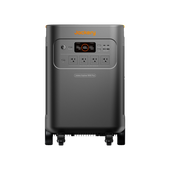
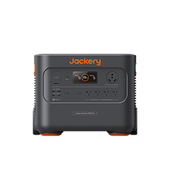
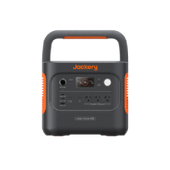
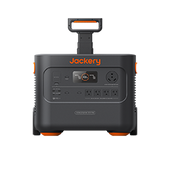
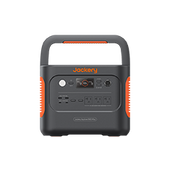


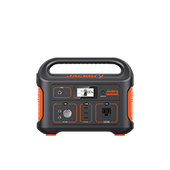
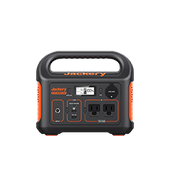
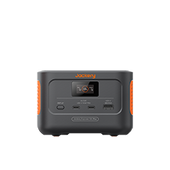
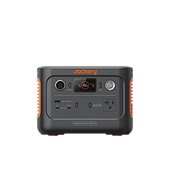

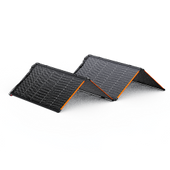
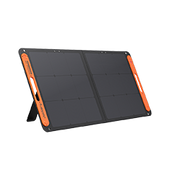

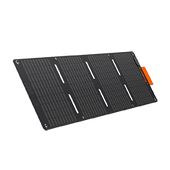
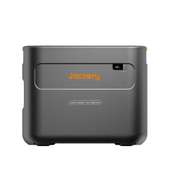
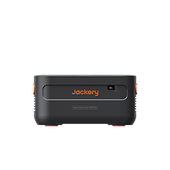
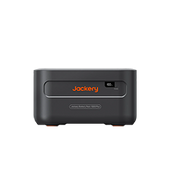
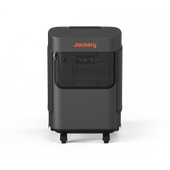


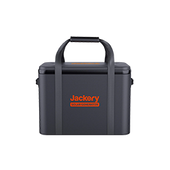

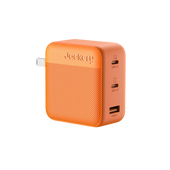
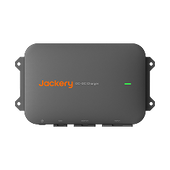
![[Add-on] Jackery Manual Transfer Switch for Explorer 5000 Plus](http://ca.jackery.com/cdn/shop/files/add-on-jackery-manual-transfer-switch-for-5000-plus-240V.webp?v=1757043692&width=170)








